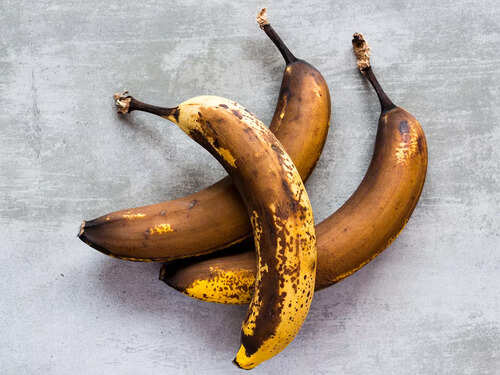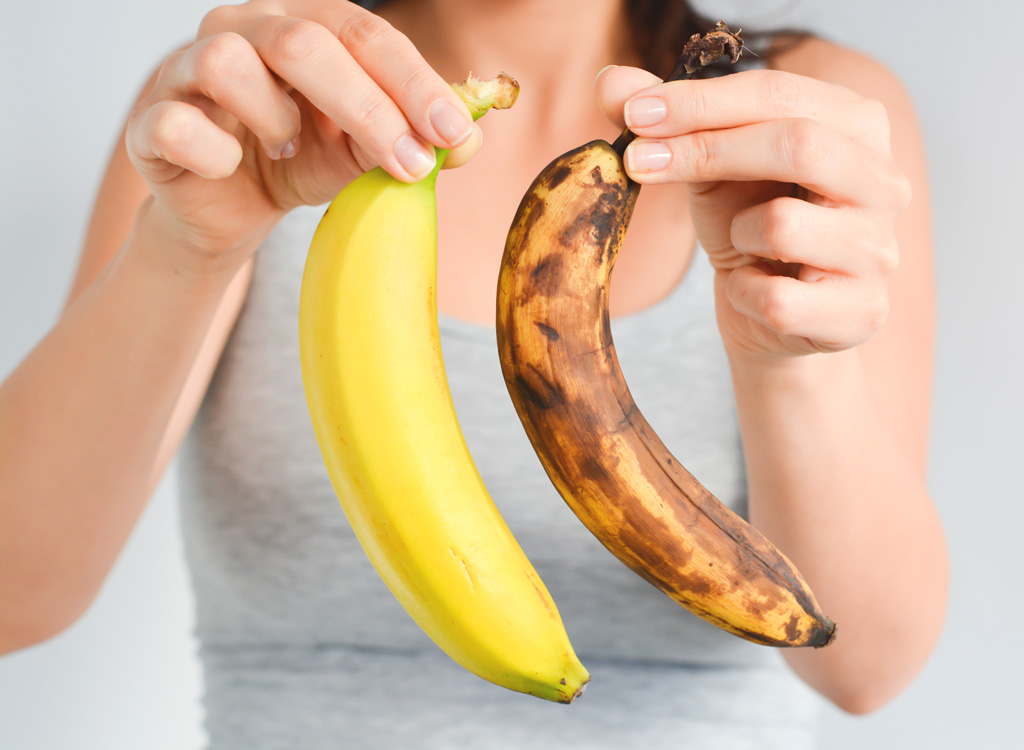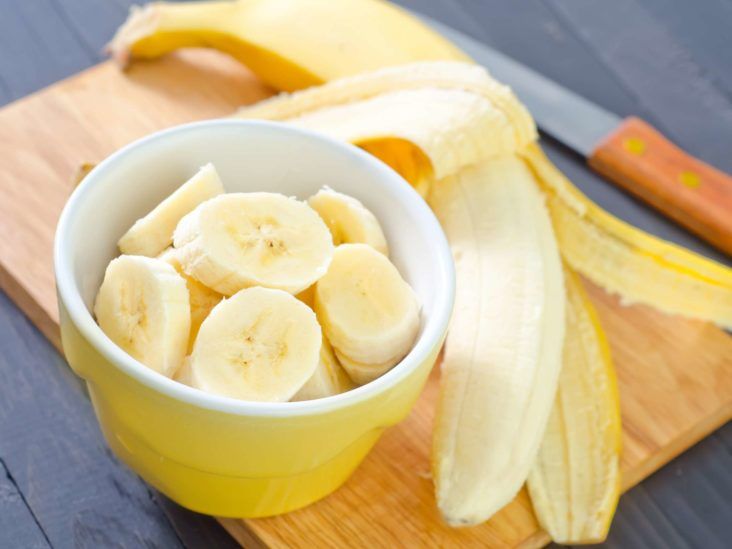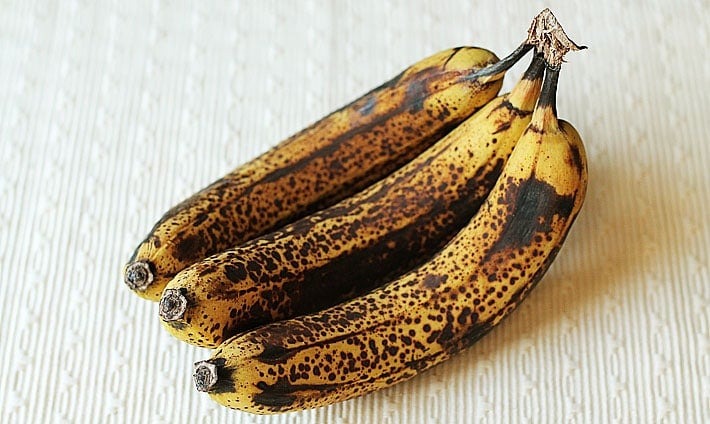Bananas are one of the world’s most consumed fruits, celebrated for their natural sweetness, convenience, and nutritional value. Recently, a claim has spread online suggesting that bananas with dark spots contain higher levels of a compound called tumor necrosis factor-alpha (TNF-α), which supposedly helps the immune system destroy harmful cells. But how much of that is true? Here’s what reputable science actually tells us about overripe bananas and their potential health benefits.
The Viral Claim About Brown Bananas
According to the viral posts, the browner a banana’s peel becomes, the more powerful it is for healing. The claim further suggests that as bananas ripen and form brown spots, they begin producing TNF-α — a protein that supposedly boosts the body’s ability to destroy malignant cells and prevent cancer.
While the idea sounds intriguing, scientific evidence does not support it in humans. The claim appears to have originated from a misinterpreted Japanese study that examined banana extracts in mice under laboratory conditions, not through dietary consumption.

Why the Claim Is Misleading
Experts and fact-checkers have clarified that no credible human research shows eating ripe or brown bananas increases TNF-α levels or kills cancer cells. According to scientific reviews, the referenced studies tested highly concentrated banana extracts in controlled lab settings, which is very different from the effects of eating a banana.
Health professionals emphasize that while bananas contain beneficial nutrients, there’s no evidence they act as a direct cancer-fighting or immune-activating food. Overstating their effects risks misleading the public and oversimplifying complex biological processes.

What Science Really Says About Bananas
Bananas are undeniably nutritious. They’re rich in potassium, vitamin C, dietary fiber, and antioxidants, all of which contribute to a healthy diet. These nutrients help regulate blood pressure, support digestion, and provide natural energy.
Research has shown that certain banana components, such as resistant starch and polyphenols, may play a role in reducing oxidative stress — a process linked to aging and chronic disease. However, these findings don’t mean bananas can prevent or cure illnesses.
A 2021 review published in the Cancer Preventive and Therapeutic Potential of Banana journal analyzed banana bioactive compounds and their potential anticancer properties. The researchers concluded that although laboratory studies on banana extracts are promising, there is still insufficient evidence from human clinical trials to confirm these effects.
Studies on Banana Compounds and Inflammation
Another study in 2019 found that certain banana flower and bract extracts inhibited inflammatory cytokines such as IL-1β, TNF-α, and IL-6 in cell-based tests. However, the research was performed using concentrated extracts from non-edible parts of the banana plant, not from the ripe fruit typically eaten.
This means that while some parts of the banana plant may contain compounds with anti-inflammatory effects, it doesn’t translate to practical dietary benefits when consuming overripe bananas.
The Real Benefits of Eating Bananas
Even without exaggerated claims, bananas remain one of the best fruits for everyday health. Here’s what’s confirmed:
-
Rich in potassium: Bananas support healthy blood pressure and muscle function.
-
Source of fiber: One medium banana provides around 3 grams of fiber, aiding digestion and gut health.
-
Contains vitamin C and B6: These vitamins help strengthen the immune system and support metabolism.
-
Natural antioxidants: Bananas contain dopamine and catechins, which protect cells from oxidative damage.
So while a banana’s brown spots may indicate higher sugar content and softer texture, they don’t transform it into a medicinal fruit. Instead, ripe bananas are simply sweeter and easier to digest.
How to Enjoy Bananas Safely
You can enjoy bananas at various ripeness levels, depending on taste and dietary needs:
-
Slightly green bananas contain more resistant starch, which supports gut health.
-
Yellow or spotted bananas are sweeter and softer, providing a quick energy source.
-
Overripe bananas are ideal for smoothies or baking but may not have special health powers beyond nutrition.
If bananas become too dark or emit an unpleasant odor, it’s best to discard them. Over-ripening can cause spoilage that affects quality and taste.

The Importance of Evidence-Based Nutrition
The spread of misinformation about “miracle foods” often distracts from real health strategies. Balanced nutrition, physical activity, and preventive healthcare play far greater roles in immunity and longevity than any single food.
Fact-checking before sharing health information is vital. Reputable sources such as the National Institutes of Health (NIH), the World Health Organization (WHO), and peer-reviewed medical journals should always be consulted before making health-related claims.
When reading online posts that use scientific terms like TNF-α or “immune-boosting,” always check if they cite peer-reviewed studies, human clinical data, or official health agencies. Without such evidence, claims should be viewed with skepticism.
Bottom Line
Bananas are a wholesome, nutrient-dense food that supports everyday wellness — but they are not a substitute for medical treatment or a cure for any disease. The idea that dark-spotted bananas produce TNF-α and prevent cancer is not supported by credible human evidence.
Enjoy bananas as part of a balanced diet rich in fruits, vegetables, whole grains, and lean proteins. Maintaining a healthy lifestyle, staying informed through trusted sources, and consulting healthcare professionals remain the best ways to protect your long-term health.
Sources:
-
ABC News. “Cancer and ripe bananas: How bogus claims can harm your health and the people you love.”
-
Mondal A. et al. “Cancer Preventive and Therapeutic Potential of Banana.” PMC, 2021.
-
Sandjo L.P. et al. “NOx-, IL-1β-, TNF-α-, and IL-6-Inhibiting Effects of Banana Bracts and Flowers.” Molecules, 2019.
-



